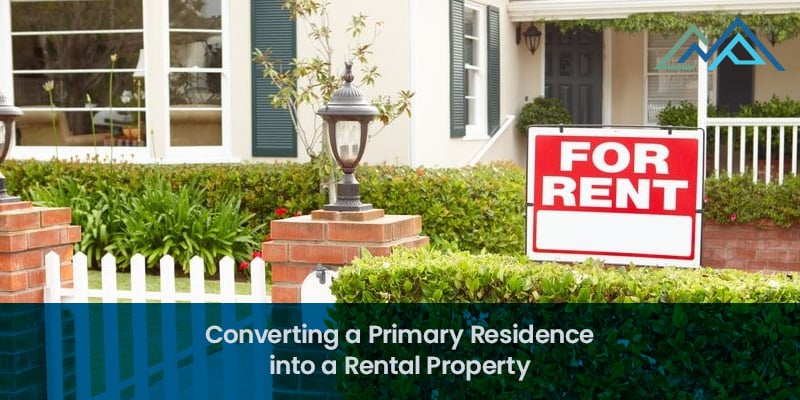Have you decided to move to another residence but find it difficult to sell your present home? One way to weather a soft residential selling market is to convert your present home to a rental property until the market improves.

If you are thinking of taking this step, you no doubt are fully aware of the economic risks and rewards. However, you also should be aware that renting out your personal residence carries potential tax benefits and pitfalls.
How to Convert a Home to a Rental Property
Converting homes to rental properties is a very easy process. Most cities will require that the owner purchases a landlord business license (typically, these cost between $15 and $50), and it must be renewed annually.
Once you have moved out and have put the house up for rent, you must determine a depreciable value for the house. This value is lesser than the fair market value of the home or the home’s original cost. If you purchased the home for $200,000 and the market value is $250,000, you can only depreciate $200,000.
You may consider setting up an LLC to hold the rental property. This will make it more official that the property is now a rental.
Benefits of Renting Out Your Home
Generally, you are treated like a regular real estate landlord once you begin renting your home to others. That means you must report rental income on your tax return but also are entitled to offsetting landlord-type deductions for the money you spend on utilities, operating expenses, incidental repairs, and maintenance (e.g., fixing a leak in the roof). Additionally, you can claim depreciation deductions for your home. You can fully offset your rental income with otherwise allowable landlord-type deductions.
However, under the tax law, and passive activity loss (PAL) rules, you may not be able to currently deduct the rent-related deductions that exceed your rental income unless an exception applies. Under the most widely applicable exception, the PAL rules won't affect your converted property for a tax year in which your adjusted gross income doesn't exceed $100,000, you actively participate in running the home-rental business, and your losses from all rental real estate activities in which you actively participate don't exceed $25,000.
Be Aware of these Home Rental Pitfalls
You should also be aware that potential tax pitfalls may arise from the rental of your residence.
Unless your rentals are strictly temporary and are made necessary by adverse market conditions, you could forfeit an important tax break for home sellers if you finally sell the home at a profit.
You can generally escape taxation on up to $250,000 ($500,000 for certain married couples filing joint returns) of gain on the sale of your home. However, this tax-free treatment is conditioned on your using the residence as your principal residence for at least two of the five years preceding the sale. So renting your home out for an extended time could jeopardize a big tax break.
Even if you don't rent out your home so long as to jeopardize your principal residence exclusion, the tax break you would have received on the sale will not apply to the extent of any depreciation allowable concerning the rental or business use of the home for periods after May 6, 1997, or to any gain allocable to a period of rental use after Dec. 31, 2008.
Some homeowners who bought at the height of a market may ultimately sell at a loss. In such situations, the loss is available for tax purposes only if the owner can establish that the home was converted permanently into an income-producing property and isn't merely renting it temporarily until he can sell (this is when it is beneficial to hold the home in an LLC). Here, a longer lease period helps an owner. However, if you are in this situation, you should know that you probably won't wind up with much of a loss for tax purposes. That's because the basis (cost for tax purposes) is equal to the lesser of the actual cost or the property's fair market value when it's converted to rental property. So if a home were bought for $300,000, converted to rental property when it's worth $250,000, and ultimately sold for $225,000, the loss would be only $25,000.
Final Recommendation
Whether to turn a principal residence into a rental property isn't easy to resolve. We recommend that if you are thinking of converting a home into a rental property for any reason, you meet with your accountant at CMP, who can review your situation in detail and guide you to an answer that makes the most sense for you.

















